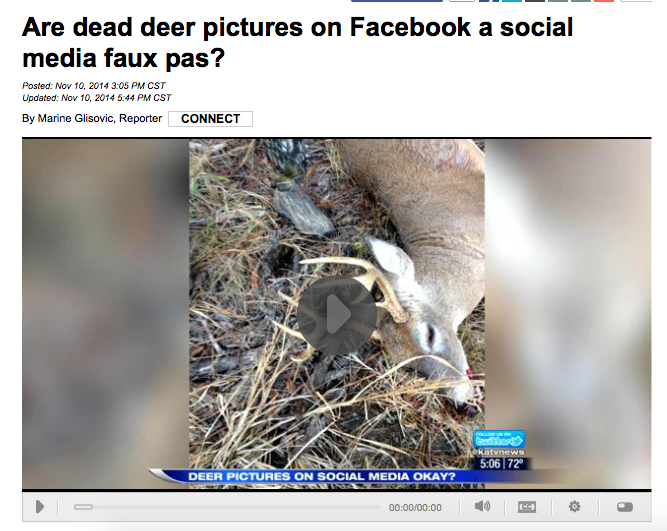It is hunting season in Arkansas. Deer season just opened. And as a result, my Facebook feed has been flooded with photos of people sharing their kills. For those not in a hunting region, this means sharing a picture of yourself holding up a dead dear by its antlers.
Is there anything wrong with this? As I told the reporter at KATV when I was asked to comment on etiquette for this type of sharing: “it depends.” Who are your friends? Who is going to see the post and are you comfortable with what that post says about you? Hunting trophy pictures don’t need their own chapter in a book of social media etiquette; there are a few basic rules that can apply to every situation.
- Think about the value of content you are posting. Your tone should be interesting, informative, unique and conversational. Would you be comfortable if your boss, client, spouse, pastor or children’s teacher read and shared your views?
- Remember, what you do on the internet is a reflection of you and quite possibly your business. Be positive and encouraging. No one wants to be associated with a negative individual. Just because you are “hiding” behind a computer doesn’t give you free reign to act as you please. You still need to treat people properly.
- Remember that it’s okay to prune your friend list. “You don’t need to make an announcement about it.” If there’s someone (say, an oversharing cousin or a constantly complaining coworker) whom you can’t in good conscience unfriend, simply hide her from your feed instead. The next time she does a status update, click on the drop-down menu in its upper right-hand corner and unsubscribe from her post. You can also limit the number of status updates you see from her by using that same menu. That way you can declutter your page without hurting anyone’s feelings.
- But be careful not to abuse the five most obnoxious kinds of updates: intentionally vague posts, chronic complaining, meaningless calls to action, oversharing, and posting too frequently.
- Remember that these sites are public. Even if you’re extremely careful with your privacy settings, it’s best not to post anything that you wouldn’t want your grandmother or your boss to see.
KATV – Breaking News, Weather and Razorback Sports
Sources: Real Simple, Huffington Post


